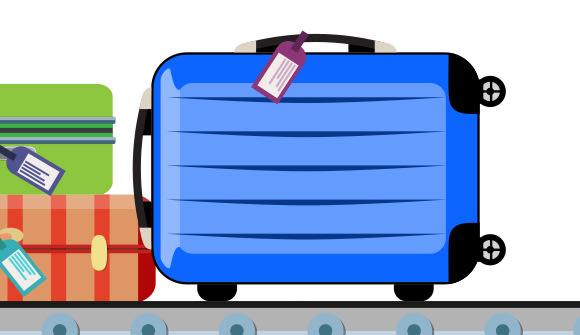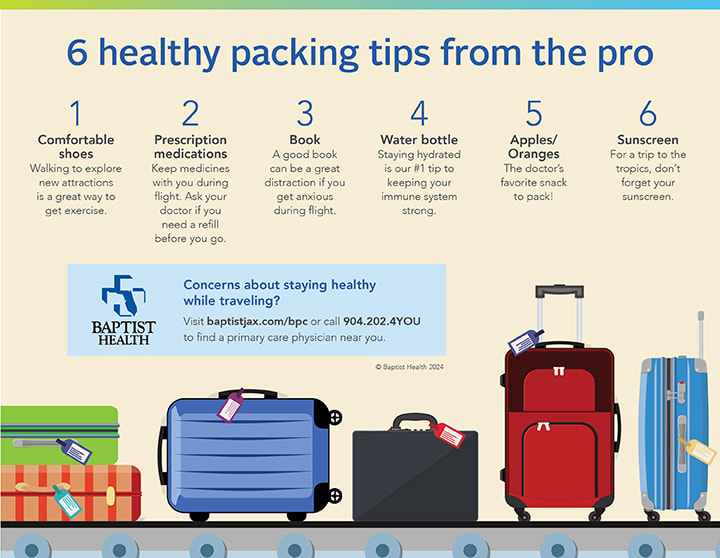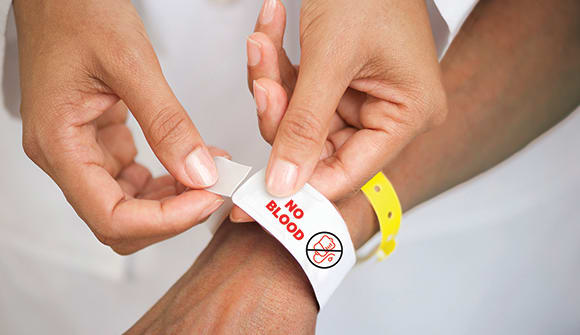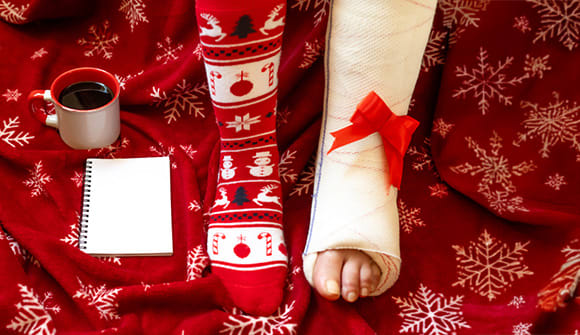Got the travel bug?
Tips for a safe and healthy vacation.
Article Author: Wesley Roberts
Article Date:

Let’s face it, it’s hard to feel like yourself when you’re sleeping in a hotel bed, riding in the back of cabs and eating out for every meal. From family vacations to business trips to holiday travel, we’re always on the go. And it’s even harder to travel when you’re sick.
Shalika Katugaha, MD, system director of Infectious Diseases for Baptist Health, shared tips for every situation to help you stay healthy while traveling.
Before your trip
It’s always a good idea to check in with your primary care physician to see whether you need any destination-specific vaccines or medications.
“This is also an opportunity to make sure you’re up to date on routine immunizations, which will protect you from diseases that may have been eradicated in the United States but are still present at your destination,” said Dr. Katugaha. “This includes the annual flu shot.”
In your suitcase
Before you pack your bags to head out of town, think about how to fill your suitcase with items that will make staying healthy a breeze:
–Comfortable shoes
“Make sure you’re physically ready for your trip. If it’s adventure travel, train properly and prepare. Make sure to pack proper clothing and comfortable footwear,” said Dr. Katugaha.
–Sun protection
Sunscreen isn’t just a summer essential. “Prolonged exposure to the sun’s ultraviolet rays can lead to short-term issues, like sunburns, and long-term issues, like sun damage, premature aging and skin cancer,” said Dr. Katugaha. You should apply a broad-spectrum sunscreen with an SPF of 30 or higher at least 20 minutes before venturing out into the sun, and reapply every two hours and every time you get out of the water or sweat heavily. Additionally,
Dr. Katugaha recommended bringing skin-covering clothing, a wide-brimmed hat and sunglasses that block UVA and UVB rays.
–Insect repellant
This is a very important tool for avoiding insect-borne diseases, as well as painful insect bites. “Use Environmental Protection Agency (EPA) registered insect repellants,” Dr. Katugaha recommended. “The insect repellant should have an active ingredient like DEET or picaridin. Apply it after sunscreen. You can also treat clothing and gear with permethrin – an insecticide – or buy permethrin-treated clothing.”
–List of physicians and phone numbers
–One-page medical history
–First aid kit
–Your insurance card or a photocopy of it.
You should also bring copies of your passport and other travel documents.
–Prescriptions and other medications.
Airlines recommend passengers keep prescription medications in their carry-on luggage to make sure they have it handy if needed. A few key tips:
- Make sure you have enough medicine to last your entire trip.
- Take a pill box to organize medications by day. This way, you only have to pack the amount you will need for the trip.
- If you’re flying and medicine needs to be refrigerated, pack a small cooler.
–Travel health care plan
Research how you’d get care at your destination, should the need arise. Find out whether your insurance covers medical care outside your state or country.
–Masks
“Though not required, masks can be useful in crowded spaces with poor ventilation, close-contact situations or if there are high levels of respiratory disease at your travel destination,” said Dr. Katugaha. “Don’t be shy to bring out your mask if people around you are coughing or sneezing or if you’re showing signs of illness.”
On the plane
Does your heart rate skyrocket the second your plane leaves the ground?
“Talk to your physician if you have anxiety about flying,” said Dr. Katugaha. “Take deep breaths during takeoff and landing. Bring distractions like calming music or fun reading material."
What to bring on the airplane:
- Wipes. These are helpful to sanitize the tray table, seat, seatbelt and surrounding areas.
- Hand sanitizer. Remember to pack a small bottle if you’re flying; TSA rules say any liquid must be less than 3.4 ounces! It’s important to wash your hands with soap and water frequently, but hand sanitizer containing 60% alcohol can help kill germs when you don’t have access to a sink.
- Calming music or a good book.
- Compression socks. “These help alleviate any swelling that may occur during the flight and aid with blood flow,” said Dr. Katugaha.
Things to do:
- Drink lots of water. Staying hydrated is an important part of keeping your immune system strong.
- Move your legs. Sitting for a long period of time can increase your chance of getting a blood clot in a large vein. To prevent blood clots, walk around. “If possible, book an aisle seat so you can walk around every 2-3 hours,” said Dr. Katugaha. Additionally, it’s helpful to exercise your calf muscles and stretch your legs while you’re sitting.
At your hotel
Planning for a healthy and safe hotel stay starts during the booking process.
- For extra steps in your day, book a hotel within walking distance of key attractions or take the stairs instead of the elevator.
- Search for hotels with a gym or pool.
- Prioritize safety. Make sure the hotel is in a safe area and your hotel door is locked at night, and always choose reputable forms of transportation. Safety is an important part of overall health.
On your plate
Finding healthy food on the go can be challenging. We agree – airport salads don’t always sound appetizing. Expert tips for maintaining a normal diet:
- Look for a hotel or restaurant with a breakfast buffet that offers healthy options.
- Pack your own snacks. Turn to fruits, veggies and nuts to satisfy your stomach.
- Hit the grocery store. Not only is this usually healthier than eating out, it’s also more affordable.
- Inform the airline of any allergies you have before you travel.
- Split your meal. Restaurant portion sizes can be larger than what we eat on a day-to-day basis. You can always split a plate with another person or ask the restaurant to bring half of your meal to the table and box the other half.
- Plan ahead. People with unique medical conditions should talk to their physician about how to manage dietary needs while on the go. For example, if you have high blood pressure, you can ask for vegetables without added sauces or extra salt.
- Be wary of foodborne illnesses. Dr. Katugaha recommended avoiding raw or unpasteurized foods and washing produce in bottled (or sterilized) water when possible. If you’re hitting a buffet, remember that cold food should be served cold, and hot food should be hot. If anything’s lukewarm, it’s best to pass on it.
- Most importantly – don’t stress! Eating for nutrition and pleasure are equally important. A big part of travel is experiencing fresh cuisines and making new memories along the way. Bon appetit!

Talk to your primary care physician about your health at home and away
To find the right provider for you and your family, call 904.202.4YOU (4968) or fill out the appointment request form.
Reference: CDC Traveler's Health



